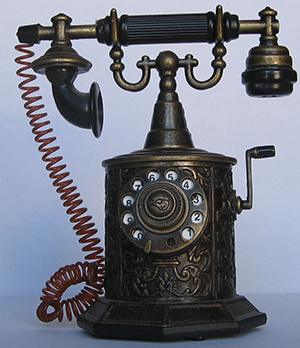Effective Communication
Posted by Improving Lives Counseling | Articles
By Tammy
“That’s not what I said.” Can you remember the number of times there has been an argument and one or both persons has said this phrase. Were there feelings of frustration or anger? Did the argument escalate as each person tried to correct the misinterpreted statement(s)? Statements of disbelief tossed back and forth as each tried to prove their point.
 Communication can be misconstrued for a variety of reasons. Perhaps the speaker did not speak loud or clear enough to get the message across. Word choice can play a part in the confusion. People are their own individuals and can define a word differently than the person speaking the word to them. For example, a person with diabetes whose sugar reading was in the low 200s might say, “That’s good.” While the person listening to them knows that a “good” sugar reading would be under 110. The listener’s response might be, “That’s not a good reading.” The person with diabetes may have been stating that their most recent reading is better than the previous reading. Without clarification of the original statement, the listener may be left shaking his or her head or trying to teach the diabetic person what constitutes a good reading.
Communication can be misconstrued for a variety of reasons. Perhaps the speaker did not speak loud or clear enough to get the message across. Word choice can play a part in the confusion. People are their own individuals and can define a word differently than the person speaking the word to them. For example, a person with diabetes whose sugar reading was in the low 200s might say, “That’s good.” While the person listening to them knows that a “good” sugar reading would be under 110. The listener’s response might be, “That’s not a good reading.” The person with diabetes may have been stating that their most recent reading is better than the previous reading. Without clarification of the original statement, the listener may be left shaking his or her head or trying to teach the diabetic person what constitutes a good reading.
Body language, voice tone, and loudness also play a big part in communication. If a person states, “I’m not angry” but his or her body is tense with clenched fists; the verbal message will most likely be ignored and the person perceived as angry. Effective communication is an important component in a person’s interaction with others. Poor communication can result in relationships growing apart or living a life in which needs and wants may not be met.
One industry that has depended heavily on effective communication is the fast food businesses. A person drives up to the outside menu and microphone and gives an order to the person listening. Usually the one taking the order will then repeat back the order to make sure there have been no misunderstandings that might cause the order to be incorrect. If there is a problem with the order the customer now has a chance to correct it. This is important so that the business grows and thrives. Repeated errors in orders will eventually cause customers to start looking for another place to get food prepared the way they want it.
The same principle applies to relationships. When listening to another person talk about an issue, put aside any prejudgments on what he or she is trying to say. It becomes very difficult, if not impossible, to truly hear what the other person is saying if the listener is also talking at the same time or formulating a response in his or her head. Simply listening to what another person is saying and trying to understand what that person is communicating does not imply approval or agreement. It is showing the respect to others by allowing them time to address what’s on their mind. The listener’s turn will come to respond. Take the time to truly understand what the other is saying. Beginning comments with “I think I heard you say…” or “Did you mean …” gives the speaker the message that the listener is truly trying to understand what is being communicated. Once the speaker agrees that the listener has gotten the message correct; it is now the appropriate time for the other person to respond with the same courtesies given to them. Effective communication can help relationships grow and thrive.
